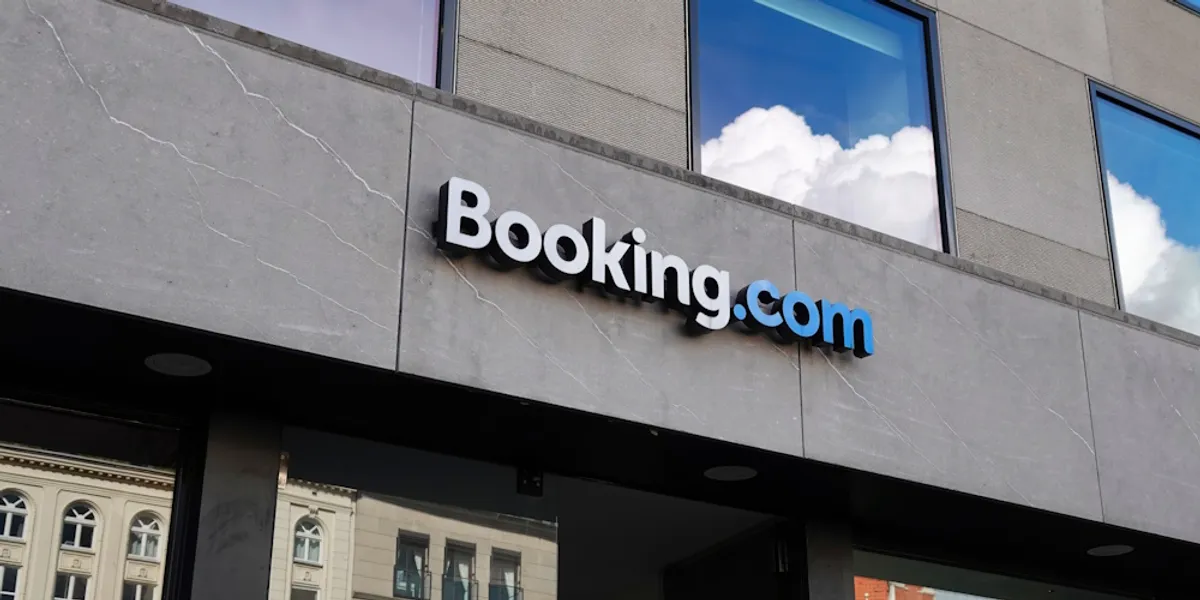Hotels & Accommodations
Choice Hotels Reports $81.7M Q2 Profit, 93K-Room Pipeline

It has also launched support programs to ease pressure from rising costs, Cuculic and Brad LeBlanc, BWH’s senior vice president and chief development officer, said during an interview at AAHOA’s 2025 Convention and Trade Show. BWH generated $8 billion in revenue in 2023 and operates more than 4,500 hotels in 100 countries and territories, according to its website. Its loyalty program has 53 million members, and Cuculic is optimistic.
“We’re a resilient industry and at BWH Hotels, we’re an optimistic company. We look at challenges as opportunities, and we’ve been meeting as a team,” Cuculic said. “When a challenge presents itself, I think you have to look at how you’re going to react, and if the strategies you put in place are still the strategies you are going to execute, and for us, they are. We see nothing to lead us to change course of our long term strategies, and that includes our investments in technology, marketing and sales.”
LeBlanc said developers should look at the long-term trajectory of the industry. He cited previous challenges, from high oil prices in the 1970s to the 9/11 attacks and COVID.
“We’ve been through a lot. We’ve been through a lot of turbulence and the industry ends up on the other side better than it was,” he said. “Look at a long trend, and the trend doesn’t change. It’s just straight up. People want to travel. It’s demand for lodging, and that’s what we do,
Still, Cuculic said they are “being thoughtful, watching carefully.” At the same time, the company continues to provide support for its owners.
“When headwinds appear, you reassess—but nothing so far suggests a need to shift course,” he said. “We’re focused on the long term: investing in AI, technology, marketing and sales, while integrating those tools across development, revenue management and operations to stay efficient and effective.”
Following a vision
Part of BWH’s planning for the future was to set a target of reaching 5,150 hotels globally in five years. Cuculic said the goal is achievable if you remember that BWH is a global company. It signed 300 deals last year and has more than 200 hotels in the pipeline.
“You don’t just create that kind of a vision,” he said. “You have to drive revenue. You have to drive brand contribution. You have to have a strong loyalty program. That’s how you get there.”
In June, BWH reported that it added nearly 100 new hotels globally in the first half of 2025. Most were in Latin America, the Middle East and Asia Pacific, and in areas following traveler interests and trends like cultural discovery, wellness, and outdoor adventure.
“The first half of 2025 has been nothing short of transformative for BWH Hotels. We’ve not just added hotels; we’ve strategically expanded our footprint, igniting our growth trajectory worldwide. This remarkable achievement is a testament to the unwavering dedication of our partners and hoteliers, who share our vision for unparalleled hospitality,” Cuculic said in a statement.
Cuculic also said the company is seeing growth in markets including North America, India, the Middle East, South America, Europe and Scandinavia. Cuculic said India remains a core opportunity.
“I was just in India. Everybody there is tremendously positive,” he said.
That positivism is driven by the policies of India Prime Minister Narendra Modi, Cuculic said.
“He’s investing in the infrastructure, highways and airports, which allows people to travel. It encourages travel,” he said. “As you’re encouraging travel, based upon that growth of the infrastructure, hotels will follow. So, everyone is very bullish.”
In January, BWH Hotels announced plans to expand WorldHotels into India, Bangladesh, and Sri Lanka. The company, which acquired WorldHotels in 2019, is now present in South Asia through
Sorrel Hospitality, its New Delhi–based master franchisee. Indian media reported that Sorrel will extend operations into Bangladesh and Sri Lanka.
Brand strategy
BWH segmented its brand portfolio to match developer needs across different regions and cycles. Its brands cover extended stay with @Home, Executive Residency and SureStay Studio; boutique and upscale: Aiden and Sadie; economy: SureStay; and soft branding: WorldHotels.
LeBlanc also said clarity in brand positioning is critical for development traction.
“You have to have a brand that meets developers where they are in their development appetite,” he said. “I would say that BWH is an organization that, over the last five to 10 years, has done a really good job putting its swim lanes in place as it built a brand family.”
During BWH’s owners’ conference last year, LeBlanc said extended‑stay brands ruled the pipeline. That hasn’t changed, he says now, with strong interest by the company’s franchisees.
“When the capital markets improve, and they will, extended stay is going to be on the front side of that line,” he said.
The company is focusing on extended stay in sectors such as healthcare, workforce housing and energy. Cuculic said the healthcare industry has a growing need for hotels to house traveling medical professionals.
“As we have an aging population, health care needs are expanding, and extended stay near health facilities are huge opportunity,” Cuculic said. “That’s where people need us, and I’m using that term need us because it’s almost humanitarian to have a long term, extended stay, term hotel near those kinds of facilities.”
LeBlanc said other industries with itinerate work forces support extended stay.
“I love the oil and gas business,” he said. “I absolutely love the world of energy, and as energy plugs into what I think it will in the next four or seven years, extended stay will be again at the forefront of that development.”
The company is also expanding into outdoor lodging. Zion Wildflower Resort in Zion National Park, Utah, its first glamping project, launched with strong presale performance. Leblanc said Tony Nelson, Wildflower’s managing partner, was pleased with the presale season.
“He, by all means, is smiling ear to ear,” he said. “When we plugged him into this $9 billion reservation system that we have, he doesn’t need much of that to be a big success. He was already a minimum of 50 percent occupancy.”
A second property, Pico Bonito Lodge, has been signed in Honduras.
“It’s upscale, it’s luxury. They’re actually renovating to even make it more upscale,” LeBlanc said. “It’s going to be a neat opportunity for us to walk into what I call outdoor hospitality. I’m a believer that outdoor hospitality is going to be a big piece of our business in the future.”
‘Tariff impact limited so far’
Both executives said the company is monitoring the impact of tariffs and material costs on hotel development. So far, they do not see any major disruption.
“It’s those projects that are entering the construction mode that are having to step back and go, ‘All right, what’s my lumber look like? What’s my sheetrock look like, what’s my metal look like, what’s my wood look like? And so, that’s left to be seen.”
Cuculic said BWH continues to take a “cautiously optimistic” view.
Hotels & Accommodations
Luxury hotels in London become affordable as competition heats up and demand cools

With more luxury openings driving up competition and economic uncertainty tamping down demand, London’s hotels are recalibrating their prices. The result is the first real deflation in luxury hospitality since the post-Covid “revenge travel” boom. Take the five-star Raffles at the OWO, which made headlines with its then-unprecedented £1,100 starting price when it opened in 2023. Search for a basic room now, and you might find one available for £880—20% less than its original going rate.
A similar story is unfolding across other top hotels in London. At the Peninsula London, rooms can be found for around £900, down from the £1,300 the hotel was charging when it opened two years ago. One night at the all-suite Emory Hotel in Knightsbridge can be booked for £936, while last year’s debut prices was £1,600.
Also read | 6 foreign countries Indian passport holders can travel to and all you need is ₹50,000
And it’s not just the relative newcomers that are adjusting their prices—a room at the Dorchester can be booked for £750, when the starting room rates were above £1,000 last year. Data shared by Fora Travel, a “host agency” for thousands of travel advisers, shows average nightly rates at five-star London properties are anywhere from 20% to 50% lower than the same period in 2024.
“The drop in prices is largely driven by heightened competition,” says Fora adviser Aleksandra Coric. To wit, London’s parade of ultraluxury openings is showing no signs of slowing down.
The long-anticipated, 144-room Chancery Rosewood at the old US Embassy in Mayfair is now taking reservations—it will open in September—and later this year, the 109-room Six Senses will follow suit, serving as the anchor for the regeneration of the Bayswater neighborhood just north of Hyde Park. Then 2026 will see Auberge Hotels make its London debut: It’s transforming a 102-room grand Palladian mansion with connections to the royal family. A third Mandarin Oriental property and a Waldorf Astoria are on the way too. It all adds up to more than a thousand new top-tier rooms in the next two years in what’s already a crowded market.
Coric says the market correction is largely about supply and demand, with global economic uncertainty making it difficult for the travel industry to sustain the record-breaking figures of the last few years. The ramifications of all that are most pronounced at the highest end of the market—likely as aspirational travelers abandon their splashiest plans in favor of more moderate budgets.
Also read | Visa fraud: British High Commission extends campaign to raise awareness in Punjab and Haryana
Tom Cahalan, co-founder of luxury travel agency Dorsia Travel, posits that the sky-high rates in 2024 were also something of a failed experiment, with hoteliers trying their luck to see just how much consumers were willing to shell out. “Even our ultra-high-net-worth clients still want value for money,” he says, and the prevailing consumer sentiment has been that hotels charging upwards of $1,000 aren’t always delivering an experience that’s worth the added cost.
Cahalan says it’s ultimately easier for hotels in seasonal destinations, like the Amalfi Coast or the south of France, to maintain sky-high room rates, simply because their limited availability effectively creates a scarcity effect. By contrast, he explains, London is a year-round destination.
Some of the newcomers who are vying to be the best of the best are still betting they can command blockbuster prices. The new, all-suite Chancery Rosewood has starting prices of £1,280 a night in September, for instance. But the new Six Senses will likely price lower, with executives from the wellness-focused brand saying that the London property is aiming to charge rates of around £700.
Cahalan sees a silver lining to the price wars: He argues that all the competition has helped London leap-frog Paris to become the world’s best city for five-star hotels. And if you factor in the competition across the channel, Britain’s bastions of luxury look like relative bargains. After all, the best hotels in Paris—be it Le Bristol or the Ritz or Rosewood’s Hotel de Crillon—are bucking the logic that’s prevailing in the Big Smoke. The prices there? Easily $2,200 a night.
Hotels & Accommodations
Over 10,000 European hotels join legal action against Booking.com

Europe: More than 10,000 hotels across Europe have joined the collective legal action against OTA Booking.com, expanding on a case first reported in June.
The claim challenges the platform’s long-standing “best price” clause, also known as a Platform Most Favoured Nation (PMFN) clause, which required accommodation providers to display the same or lower rates on Booking.com than on their own websites or rival platforms.
The clause was removed in 2024 to comply with the EU’s Digital Markets Act, but damages are being sought for the period between 2004 and 2024. Proceedings are taking place in the Netherlands, where Booking.com is headquartered, and are being coordinated by the Stichting Hotel Claims Alliance with support from HOTREC.
The case was initially filed by more than 25 national hotel associations and is supported by a September 2024 European Court of Justice ruling, which found that parity clauses may reduce competition. Booking.com has previously stated that the clauses help ensure fair competition and prevent “free-riding” by travellers.
Highlights:
• Over 10,000 hotels have joined a collective legal action against Booking.com.
• The case focuses on the OTA’s “best price” / PMFN clause, in place from 2004 to 2024.
• The clause was removed last year following the EU’s Digital Markets Act.
• The outcome could set a precedent for other accommodation sectors, including short-term rentals.
Hotels & Accommodations
Journey Secures $7.7 Million to Expand AI-Driven Loyalty Platform for Independent Hotels |
By Lea Mira, HTN staff writer – 8.7.2025
Journey, a New York-based loyalty platform for independent hotels, resorts, and private rentals, has raised $7.7 million in seed funding to support the expansion of its guest rewards program and AI-enabled technology platform for hoteliers. The round was co-led by venture capital firms Lerer Hippeau and Slow Ventures, with additional participation from notable investors including Brian Kelly, founder of The Points Guy; Chris Burch, co-founder of Tory Burch; entrepreneur Kim Perell; and early-stage firm Bulletpitch.
The company describes itself as the first loyalty platform purpose-built for independent hospitality operators, combining a consumer-facing rewards model with a backend technology suite. The funds will be used to scale both the guest-facing loyalty program and the operator tools, which together form what the company calls its Hospitality Experience Platform (HXP). Journey’s network currently includes more than 1,400 properties worldwide, ranging from luxury hotels such as Nihi Sumba in Indonesia to boutique accommodations like Dunton in Colorado and Castle Hill Inn in Rhode Island.
Unlike legacy hotel loyalty programs operated by major chains, which tend to emphasize consistency and brand-level status, Journey’s program is positioned around personalization and discovery. Members earn five times more points for direct bookings with participating properties than for third-party bookings, with an option to redeem pending points during their stay—a feature the company says addresses one of the most common pain points for travelers accustomed to delayed or limited redemption options.
For operators, Journey’s AI-enabled platform is designed to streamline guest engagement, boost direct bookings, and convert fragmented data into real-time hospitality actions. By combining loyalty features with automation tools, Journey aims to give independent hotels access to functionality that has typically only been available to large branded chains with proprietary tech stacks.
Founder and CEO John Sutton said the company’s vision is to reimagine loyalty in a way that supports both guest preferences and operator performance. “We have created a platform where guests are rewarded for choosing character-rich, independent stays, and hotel and short-term rental operators can finally access technology to deliver exceptional experiences,” said Sutton.
Lerer Hippeau Managing Partner Eric Hippeau, who previously served on the boards of Starwood and Marriott, said Journey’s model reflects significant shifts in both consumer travel preferences and operator needs. “Guests and hoteliers alike will benefit immensely,” he said.
Slow Ventures Managing Director Kevin Colleran also emphasized the value to previously underserved travelers who may have opted for chain hotels in the past to retain loyalty benefits. “This will help so many hotels that were previously overlooked by travelers like me who were always forced to stay at the big chains,” he said.
While Journey is entering a competitive segment of the hotel technology space, it differentiates itself through its dual focus on loyalty and automation. Existing platforms that offer loyalty solutions for independents, such as The Guestbook or Stash Hotel Rewards, typically focus on points or cash-back models but offer less integrated technology. Others, like Preferred Hotels & Resorts’ I Prefer program, support high-end independents but operate within a more traditional framework. Journey is positioning itself as a modern alternative built on AI infrastructure and a shared currency system.
In addition to hotels, Journey’s inclusion of short-term rentals in its network broadens its reach into a category that, until now, has lacked meaningful loyalty integration. The company has not announced partnerships with PMS or CRM vendors, though Sutton has indicated future integrations are on the roadmap.
Journey is currently offering an early access program for hotels and private rental operators. The company’s stated goal is to build a loyalty ecosystem that rewards both guest behavior and brand diversity, offering a more flexible and technology-forward alternative to the points programs of legacy hotel chains.
Related
-

 Brand Stories3 weeks ago
Brand Stories3 weeks agoBloom Hotels: A Modern Vision of Hospitality Redefining Travel
-

 Brand Stories2 weeks ago
Brand Stories2 weeks agoCheQin.ai sets a new standard for hotel booking with its AI capabilities: empowering travellers to bargain, choose the best, and book with clarity.
-

 Destinations & Things To Do3 weeks ago
Destinations & Things To Do3 weeks agoUntouched Destinations: Stunning Hidden Gems You Must Visit
-

 Destinations & Things To Do2 weeks ago
Destinations & Things To Do2 weeks agoThis Hidden Beach in India Glows at Night-But Only in One Secret Season
-

 AI in Travel3 weeks ago
AI in Travel3 weeks agoAI Travel Revolution: Must-Have Guide to the Best Experience
-

 Brand Stories1 month ago
Brand Stories1 month agoVoice AI Startup ElevenLabs Plans to Add Hubs Around the World
-

 Brand Stories4 weeks ago
Brand Stories4 weeks agoHow Elon Musk’s rogue Grok chatbot became a cautionary AI tale
-

 Brand Stories2 weeks ago
Brand Stories2 weeks agoContactless Hospitality: Why Remote Management Technology Is Key to Seamless Guest Experiences
-

 Asia Travel Pulse1 month ago
Asia Travel Pulse1 month agoLooking For Adventure In Asia? Here Are 7 Epic Destinations You Need To Experience At Least Once – Zee News
-

 AI in Travel1 month ago
AI in Travel1 month ago‘Will AI take my job?’ A trip to a Beijing fortune-telling bar to see what lies ahead | China



You must be logged in to post a comment Login